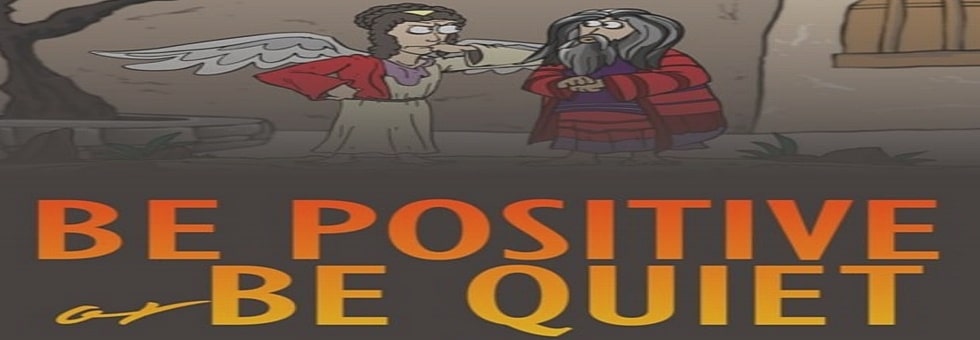
When faced with the choice between succumbing to fear or embracing courage, it can feel like standing at a crossroads where uncertainty meets opportunity. The allure of fear, with its familiar grip and protective cloak, often seems more comforting than the vulnerability courage demands. But what if you discovered a way to untangle the complexities of fear, to expose the hidden strength within you waiting to be revealed? Stay tuned as we decode the intricate dance between fear and courage, revealing the transformative power that lies dormant within your grasp.
The Nature of Fear
Fear is a natural response designed to protect you from perceived danger, but it can also hold you back from realizing your full potential. It's like a double-edged sword, capable of keeping you safe but also preventing you from taking risks and stepping out of your comfort zone.
When you feel fear creeping in, it's important to acknowledge it without letting it control you. Understand that fear is a signal that you're about to do something that matters, something that could lead to growth and fulfillment.
Instead of succumbing to fear, challenge yourself to confront it head-on. Embrace fear as a sign that you're pushing your boundaries and making progress. Remember that courage isn't the absence of fear but the ability to move forward in spite of it.
Evolutionary Responses
In the face of perceived threats, your body instinctively responds with a range of evolutionary reactions that have been honed over time to guarantee survival. When fear strikes, your heart rate increases, pumping blood to your muscles to prepare you for action. Your senses sharpen, ready to detect danger, and your body releases stress hormones to boost your strength and agility in the face of adversity. These responses are deeply ingrained in your biology, a gift from your ancestors who needed these survival mechanisms to navigate a dangerous world.
Understanding that these responses are a natural part of your being can empower you to face fear with courage. Instead of being controlled by these instincts, you can acknowledge them, appreciate their purpose, and choose how to act in response. By recognizing that fear is a signal for caution rather than a barrier to progress, you can harness your evolutionary responses to propel yourself forward, conquering challenges and embracing growth with resilience and determination. Trust in your body's ability to adapt and thrive, even in the face of fear.
Cognitive Biases

Hey there, it's important to acknowledge that cognitive biases can heavily influence your decisions and potentially lead to flawed outcomes. These biases, often subtle and ingrained, have the power to sway your choices without you even realizing it.
Bias Influence Choices
When making decisions, it's important to be aware of how cognitive biases can influence your choices without you even realizing it. These biases can impact your judgment and lead you astray from making decisions based on logic and reason.
Here are five ways biases can influence your choices:
- Confirmation Bias: You tend to seek out information that confirms your preconceptions.
- Anchoring Bias: Your decisions can be skewed by the first piece of information you receive.
- Availability Heuristic: You may overestimate the importance of information readily available to you.
- Bandwagon Effect: Your decisions can be influenced by the actions or beliefs of others.
- Sunk Cost Fallacy: You might continue down a path because of the resources already invested, even if it's not the best choice.
Flawed Decision Making
Guard against the subtle traps of cognitive biases that can cloud your judgment and lead you astray from making sound decisions based on logic and reason.
It's easy to fall into the trap of cognitive biases without even realizing it. These biases can make you rely on emotions or past experiences rather than facts, hindering your ability to make clear-headed choices.
Remember, your mind can play tricks on you, convincing you that a certain decision is the right one when in reality, it may not be. By being aware of these biases and actively working to counteract them, you can enhance your decision-making skills.
Stay vigilant, question your assumptions, seek different perspectives, and aim for objectivity in your choices. Your future self will thank you for it.
Social Conditioning
In today's society, individuals are often unconsciously molded by societal norms and expectations, shaping their beliefs and behaviors through social conditioning. You mightn't even realize the extent to which your thoughts and actions are influenced by the world around you. Here are some key points to ponder:
- Peer Pressure: Your desire to fit in with a group can lead you to adopt certain beliefs or behaviors, even if they go against your true values.
- Family Dynamics: The way you were raised and the beliefs instilled in you by your family can heavily influence your decision-making process.
- Media Influence: Constant exposure to media messages can shape your perceptions of reality and impact the choices you make.
- Cultural Expectations: Societal norms and cultural traditions can dictate what's considered acceptable or unacceptable, influencing your behavior.
- Educational System: The education you receive can shape your worldview and perceptions, impacting the way you approach challenges and opportunities.
Neurological Factors

Neurological research has shed light on how our brain's functioning can greatly impact our responses to fear and courage. When faced with fear, your amygdala, the brain's fear center, can go into overdrive, triggering a fight, flight, or freeze response. This instinctual reaction is important but can sometimes hinder your ability to choose courage over fear.
However, the prefrontal cortex, responsible for decision-making and rational thinking, can override these fear responses. By actively engaging this part of your brain, you can reframe fear-inducing situations, allowing courage to prevail.
Moreover, neurotransmitters like dopamine and serotonin play significant roles in shaping your responses to fear. Dopamine can motivate you to confront your fears, while serotonin can help regulate mood and decrease anxiety levels. Understanding how these neurotransmitters function can empower you to take control of your responses to fear.
Coping Mechanisms
When facing fear, having effective coping mechanisms is essential to maintain a sense of control and resilience. It's normal to feel afraid, but how you respond to that fear can make all the difference. Here are some strategies to help you cope when fear tries to take over:
- Deep Breathing: Take slow, deep breaths to calm your mind and body.
- Positive Self-Talk: Remind yourself of your strengths and capabilities.
- Physical Exercise: Engage in activities that release endorphins and reduce stress.
- Seek Support: Talk to a trusted friend or therapist about your fears.
- Mindfulness: Stay present in the moment and focus on what you can control.
Cultivating Courage

To cultivate courage, embrace discomfort as a stepping stone towards growth and resilience. It's natural to feel uneasy when faced with challenges, but it's in those moments of discomfort that your courage can truly shine. Instead of shying away from difficult situations, lean into them with an open heart and a strong mind. Understand that it's okay to feel afraid, but it's what you do in the face of that fear that defines your courage.
Courage isn't the absence of fear; it's the ability to act despite being afraid. Take small steps outside of your comfort zone, gradually expanding your boundaries and building your confidence. Each time you confront your fears, you're paving the way for greater courage to flourish within you.
Frequently Asked Questions
Can Fear Be Completely Eliminated From Our Lives?
You can't erase fear entirely from your life, but you have the power to diminish its grip. By facing your fears head-on, embracing courage, and believing in your strength, you can navigate life's challenges with resilience.
Are Some People Naturally More Courageous Than Others?
Some individuals seem naturally more courageous than others, but remember, courage can be cultivated within you. Embrace challenges, face fears head-on, and push beyond comfort zones. Your bravery will grow with every step you take.
How Do Societal Norms Impact Our Fear Responses?
When societal norms dictate fear as the norm, it's no wonder courage feels like a rarity. But you have the power to defy these expectations, embrace courage, and inspire others to do the same.
Can Courage Be Learned and Developed Over Time?
You can absolutely learn and grow in courage over time. By facing your fears, stepping out of your comfort zone, and embracing challenges, you can cultivate a mindset of resilience and bravery. Keep pushing forward!
Do Certain Neurological Conditions Affect Fear Responses?
When facing fear, neurological conditions may influence your response. Understanding this can aid in managing reactions. Remember, rewiring reactions through resilience and reflection can help navigate fear with fortitude and find courage within.
Conclusion
You have the power to overcome fear and cultivate courage within yourself. Remember, studies have shown that taking small steps outside your comfort zone can increase your confidence and resilience.
Embrace the discomfort, challenge your fears, and watch yourself grow stronger with each courageous step you take. You're capable of achieving great things when you choose courage over fear. Believe in yourself and take that leap of faith. You've got this!
